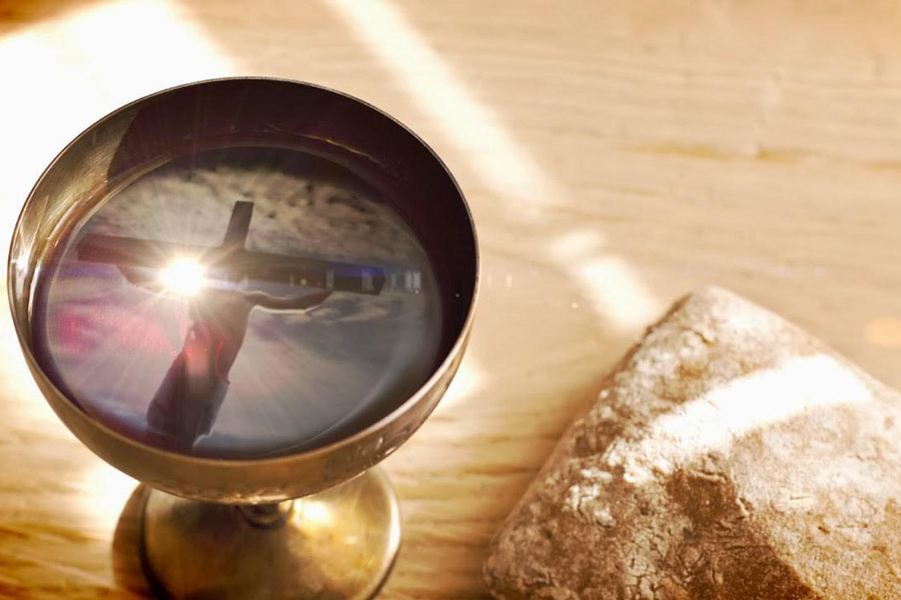
The Eucharist as Sacrifice
11-17-2024Weekly ReflectionThe Faithful DiscipleAn elemental biblical truth is that in a world gone wrong, there is no communion without sacrifice. Since the world has been twisted out of shape, it can be straightened only through a painful process of reconfiguration. It is practically impossible to read any two pages of the Bible in succession without coming across the language of God’s anger, but we mustn’t interpret this symbolic expression literally, as though God passes in and out of emotional snits/ The divine wrath is a theological symbol for the justice of God—which is to say, God’s passion to set things right.
READ MORE
The Eucharistic Liturgy, pt. 5
11-10-2024Weekly ReflectionThe Faithful DiscipleThe Mass signals this transcendent dimension in a number of ways. In the Confiteor, the liturgy invokes another world: “I ask blessed Mary ever-Virgin, all the Angels and Saints, and you, my brothers and sisters, to pray for me to the Lord our God,” and the great Gloria prayer calls to mind the song of the angels early on Christmas morning. From the beginning of the rite, therefore, we are situated in a properly heavenly context that stretches beyond that of the community gathered immediately around us.
READ MORE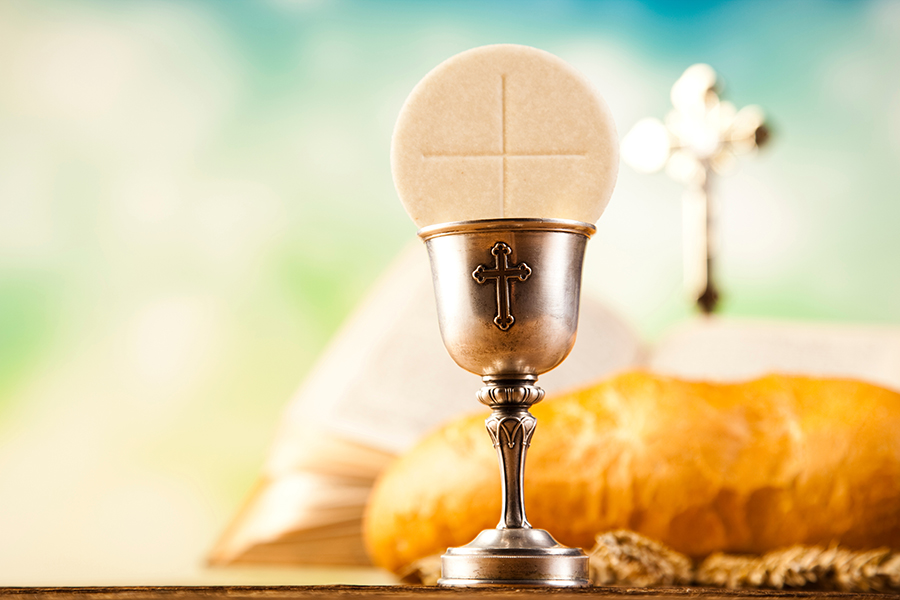
The Eucharistic Liturgy, pt. 4
11-03-2024Weekly ReflectionReflection from mycatholic.lifeNext, through the power of the words of the Eucharistic Prayer, the elements of bread and wine are transfigured into the Body and Blood of Jesus, and the people are invited to come forward and feast on the Lord. This, once again, is the Christ of the Bethlehem manger, offered for the sustenance of the world. The participants in the Mass don’t simply listen to the teaching of Jesus’ they don’t merely call his memory and spirit to ind.
READ MORE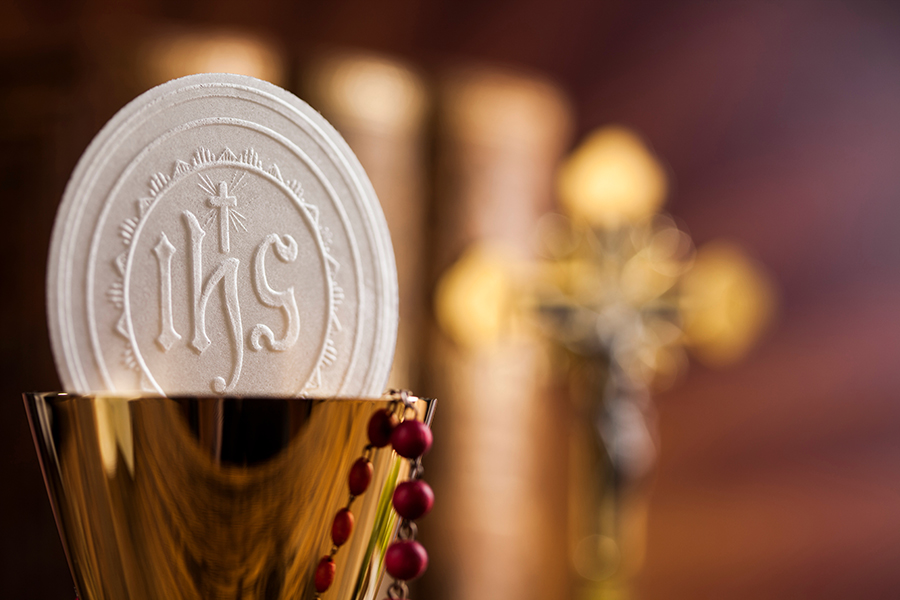
The Eucharistic Liturgy, pt. 3
10-27-2024Weekly ReflectionReflection from mycatholic.lifeAfter the Gloria prayer, participants in the Mass are seated for the proclamation of the Word of God. Since Christ is, as St. John insisted, the Word of God made flesh, the entire scripture—Old Testament and New—is the speech of Christ. Having been gathered by Jesus, we listen to him, as the crowds did who heard the Sermon on the Mount. In the ancient world, the meal, at which convivial friends reclined in easy company, was the place where philosophical conversation often took place. (Think of the Symposium of Plato, an account of a festive supper during which the conversants discoursed on the nature of love.)
READ MORE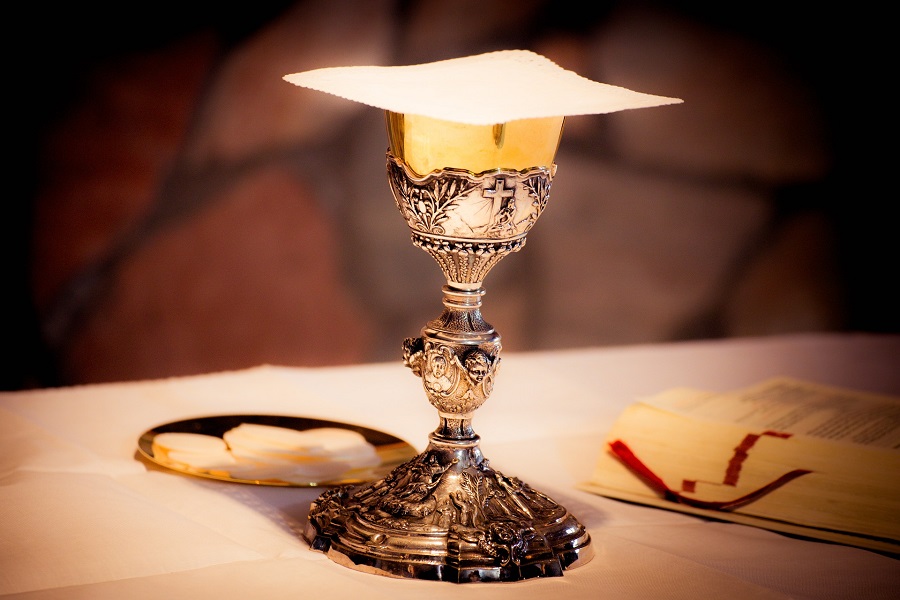
The Eucharistic Liturgy, pt. 2
10-20-2024Weekly ReflectionThe Faithful DiscipleWhen she was considering the possibility of becoming a Roman Catholic, Dorothy Day commented that what impressed her the most about the Mass was that the rich and the poor knelt there side by side in prayer. A community that would never exist in the harsh world of 1930s America strangely existed around the altar of Christ, God’s desire for the world becoming incarnate even in the midst of sin.
READ MORE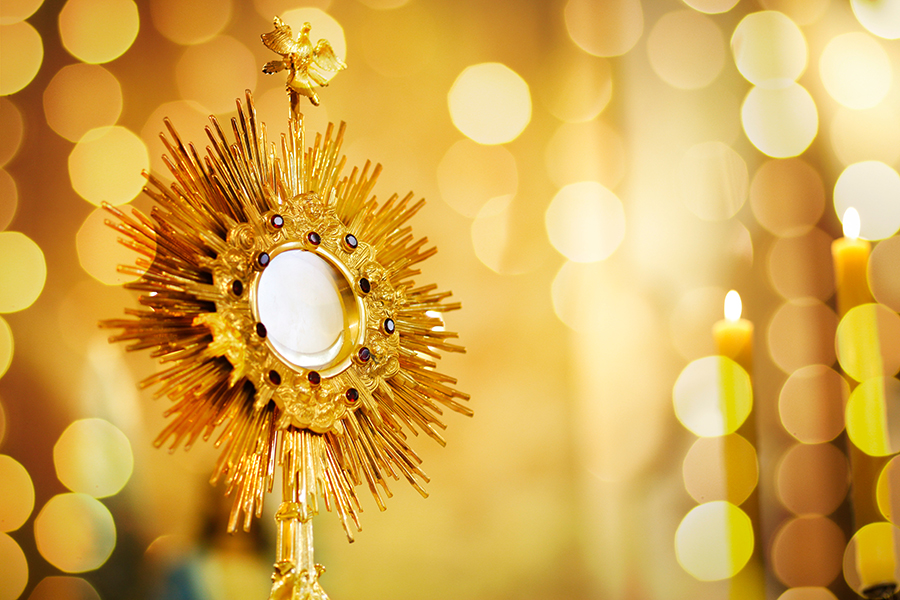
The Sacred Meal in the Life & Ministry of Jesus, pt. 8
10-13-2024Weekly ReflectionReflection from mycatholic.lifeAfter the miraculous haul, the “disciple whom Jesus loved,” traditionally identified as the author of the Gospel, shouted, “It is the Lord!” (John 21:7). St. John, the one who rested on the breast of the Lord at the Last Supper and who had the greatest intuitive feel for Jesus’ intentions, represents here the mystical dimension of the Church. Up and down the centuries, there have been poets, preachers, teachers, liturgists, mystics, and saints who have an instinct for who Jesus is and what he desires.
READ MORE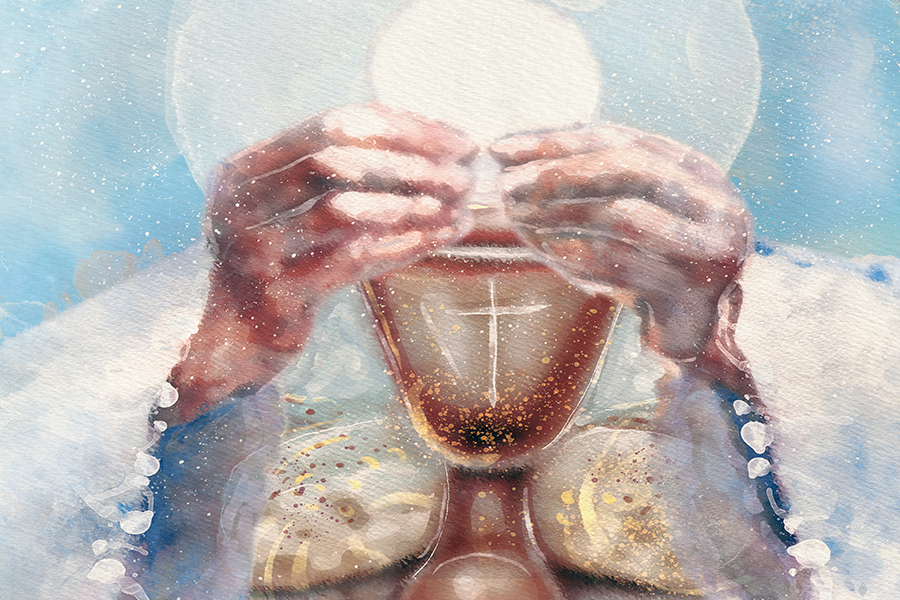
The Sacred Meal in the Life & Ministry of Jesus, pt. 7
10-06-2024Weekly ReflectionReflection from mycatholic.lifeThrough certain hints in the Old Testament, some first-century Jews had begun to cultivate the conviction that at the end of time God would bring the righteous dead back to life and restore them to a transfigured earth. In the risen Jesus, the first Christians saw this hope being realized. In Paul’s language, Christ was “the first fruits” of those who had fallen asleep—that is to say, the initial instance of the general resurrection of the dead.
READ MORE